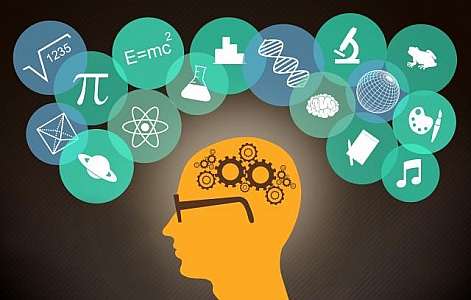10 Ways That Neuroscience Can Change Education

The recent focus of neuroscience on what facilitates lifelong learning has led to breakthroughs in the education world. Schools, teachers, and parents have the opportunity to approach and understand learning like never before. Here are 10 ways the research of neuroscience can change education.
1. Better Understanding of Childhood Development
A more in-depth incorporation of child development studies for preschool and elementary school teachers can have a huge impact on later success. The Center for the Developing Child contends that many educators have misconceptions about early childhood education. Understanding what drives children to learn and how to overcome early disadvantages best can have a huge impact on learning success through the years. Embracing the information provided by neuroscience can bridge that gap in understanding.
2. Adapting Classes to Facilitate Learning
Many schools are already changing their programs and routines to benefit student progress. One small change which the CDC recommended, in a 2015 article on Smithsonian.com, was delaying start times. Research has shown as little as 30 minutes more sleep can vastly improve cognitive function and alertness in class.
3. Spacing Learning for Optimal Absorption
Another important change school districts can make, according to neuroscience, is allowing students to choose from a diverse course guide and spacing lessons over time. The spacing effect basically says that learning complicated ideas over time, instead of all at once, enhances understanding and the creation of new neurons. Teachers can divert to this knowledge in curriculum development and improvement.
4. Cognitive Tutoring
The use of cognitive tutoring in students who struggle with mathematics is a huge breakthrough for educators. Since up to 20% of individuals have some form of mathematical learning disability, improving the way math is processed and understood is paramount for success.
5. Targeting Rewarding Learning Styles
In The Social Neuroscience of Education, Louis Cozolino talks about things educators need to know about the brain. One main point is that students need repetition and varied approaches to get the most out of learning. This means games, group activities, physical lessons and unconscious learning can all have a place in the classroom. A 2016 E-teaching article focuses on varied lessons and students breaks to enhance performance. This resource suggests incorporating physical activity and peer-to-peer study in daily lessons.
6. Incorporation of Social Activities
As discussed in Greater Good Magazine’s March 2011 article, More Friends, Bigger Brain, humans are social beings. The incorporation and focus on social activities and allowance for connections in the classroom can help enable learning. This is a small change that teachers can employ in class to help students reach their potential.
7. Integrating Technology in the Classroom
The research of our brains and how we learn is continually providing possible technological enhancements for teachers. The options for learning apps and software to involve students, space learning properly, and develop student’s brains are growing everyday. Understanding the basics of how to use these products to influence learning positively in the classroom is essential.
8. Increasing Brain Capacity Through Learning
In a December 2012 article, Dr. Mercola discusses the use it or lose it policy of brain plasticity. The basic idea is that continued education will slow the rate of decline for our brains as we age. This means that educational institutes should encourage continued learning, throughout life, to inform a healthy community.
9. Improved Approach with Autistic Students
Neuroscience is helping diagnose children with Autism and Asperger’s Syndrome as early as 18 months old. The Cambridge Neuroscience department has even developed an animated DVD to help young children learn about emotions. A KappanMagazine.com 2013 article noted that specialty programs driven by scientific research are helping improve the way we teach children on the autism spectrum. For example, the Fast ForWord Language product trial showed an up to 1.5-year advancement of speech in children who underwent the program.
10. Overcoming Learning Difficulties
In the field of Special Education, neuroscience has especially interesting lessons. In the July 2011 inForum paper, Neuroscience and Special Education, the link is examined. The paper suggests different approaches will benefit a dyslexic child versus a child with ADHD. Educators who take the time to apply scientific findings in class may see a marked difference in the way their students develop.
These 10 influences of neuroscience on the classroom and educators will continue to influence students for years to come. The research suggests this is a positive connection which can benefit the educational system and society as a whole. There are still questions to be answered and trials to undertake before some ideas can become more widely accepted. However, keeping abreast of the developments is suggested for any educator.





